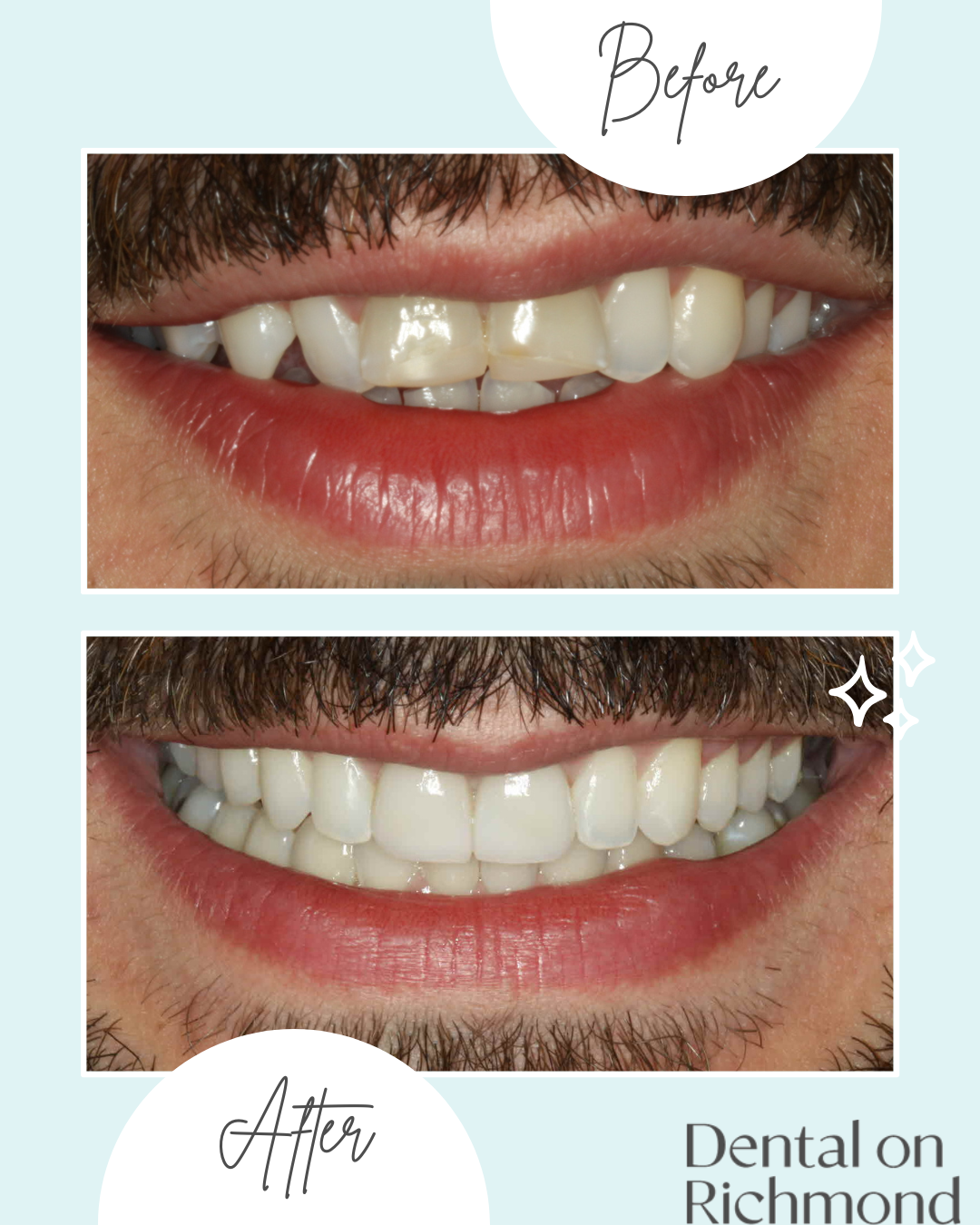Invisalign.
The clear alternative to braces.
Have you always wanted straighter teeth and a beautiful smile you love? Invisalign clear aligner treatment may be exactly what you are looking for.
Invisalign is a virtually invisible way to straighten your teeth, improve the way your teeth bite together and achieve a healthy smile you can be proud of.
Invisalign can transform your smile and help you feel more confident. From correcting crowded, crooked teeth to closing gaps between your teeth. Invisalign is a nearly invisible alternative to traditional braces. It has proven to be as effective as braces and uses a series of clear, comfortable and removeable aligners to gradually and predictably move your teeth into their desired position. Each aligner is custom-made to suit your specific needs and the treatment is almost unnoticeable as you go about your daily life.
Invisalign uses advanced 3D software, to allow you to visualise the end results of treatment before you even start. With modern technology and clear treatment timelines, it's easy to see why Invisalign has become a popular option for patients wanting to straighten their smile.
Invisalign was introduced into New Zealand in 2005 and Anna was one of the first Dentists to undergo the specialised training to become an Invisalign provider while she worked in private practice in Wellingtons’ CBD. Anna has helped numerous patients achieve the healthy, beautiful smile they have always wanted through Invisalign treatment.
With a free consult and interest free finance available there has never been a better time to try Invisalign.
Is Invisalign Right For Me?
Invisalign can help people who have:
Overcrowded teeth
Rotated or crooked teeth
Gaps between their teeth
An overbite
An underbite or crossbite
Invisalign is ideal for people looking for a virtually invisible and comfortable alternative to braces. Invisalign’s clear aligner system has helped straighten millions of smiles worldwide.
There is no official minimum age limit for Invisalign treatment, however we suggest parents and patients consider that the Invisalign aligners need to be worn for 22 hours per day for treatment to be as effective as possible in the shortest period of time.
How does it work ?
Using the latest advances in 3-D computer technology, Invisalign allows the patient to visualise the end result before treatment even starts. A series of custom made removable mouth trays (aligners) are then created. These aligners apply a controlled amount of force to your teeth, causing them to gradually move. Each aligner is slightly different, slowly moving your teeth into their new, desired position. Generally each aligner is initially worn for around 2 weeks but this period may be shorter depending on treatment complexity and patient compliance (wearing each aligner for more than 22 hours per day).
Invisalign is completely removable, so you can eat and drink what you want while in treatment and maintain your oral health with normal brushing and flossing. With no metal or sharp edges, Invisalign is comfortable to wear and doesn’t cause allergies.
The price of Invisalign in NZ
The price of Invisalign aligners will vary depending on the complexity of the treatment you require and the time treatment will take. At your initial consultation we will guide you on the cost of the treatment.
How long will Invisalign take to work?
Invisalign provides different levels of treatment depending on the difficulty of the treatment required. From:
‘Invisalign Express’, for very simple tooth movements which may take as little as 14 weeks,
‘Invisalign Lite’ and then ‘Moderate’, where treatment is usually finished within 6-12 months.
‘Invisalign comprehensive’ treatment for complex cases. The average treatment time is usually 12-18 months for these patients.
Invisalign also offers ‘Invisalign teen’ and treatment time varies depending on the patients needs and desired outcomes.
For treatment to progress as planned the aligners need to be worn for a minimum of 21 hours per day.
Invisalign results
This lovely patient was preparing for her wedding. She had always felt embarrassed with her crowded teeth and wanted to feel confident smiling.
Using Invisalign lite, Dr Anna Walker was able to straighten her beautiful teeth into the perfect position. Following a course of whitening while you sleep, we replaced two small, old fillings in the upper left front teeth.
We have loved looking after this patient and we were thrilled to see her smiling so confidently in her wedding photos.
Dr Anna Walker has had the pleasure of looking after this patient and his lovely wife for many years at her previous practice and now at Dental On Richmond.
He was initially a very anxious patient and required sedation for any treatment. Over time he became more confident in the dental chair under our care and felt it was time to address the crowded appearance of his teeth, which was causing heavy wear and breaking his teeth.
Anna moved his teeth into a healthier position with Invisalign moderate treatment. After whitening, we restored the broken upper teeth with some thin porcelain veneers to create an incredible smile that the patient feels confident and proud of.
This patient was about to turn 30 and was embarrassed by his smile. He didn’t like how crowded his teeth were and after breaking his two upper front teeth when he was younger, they were discoloured and mis-shapen.
Using Invisalign Moderate, Dr Anna Walker was able to straighten his teeth into a perfect position. The patient then used our ‘whitening while you sleep’ method to achieve a beautiful tooth colour which we were able to match perfectly with porcelain crowns on his two upper front teeth.
The patient now has a confident, beautiful smile. He is thrilled with the result.
Sometimes a small change can make a big difference. Our lovely patient experienced some relapse after having braces as a teenager. Using only 10 aligners, Dr Cameron Roling was able to bring this patient’s front teeth back into alignment.







